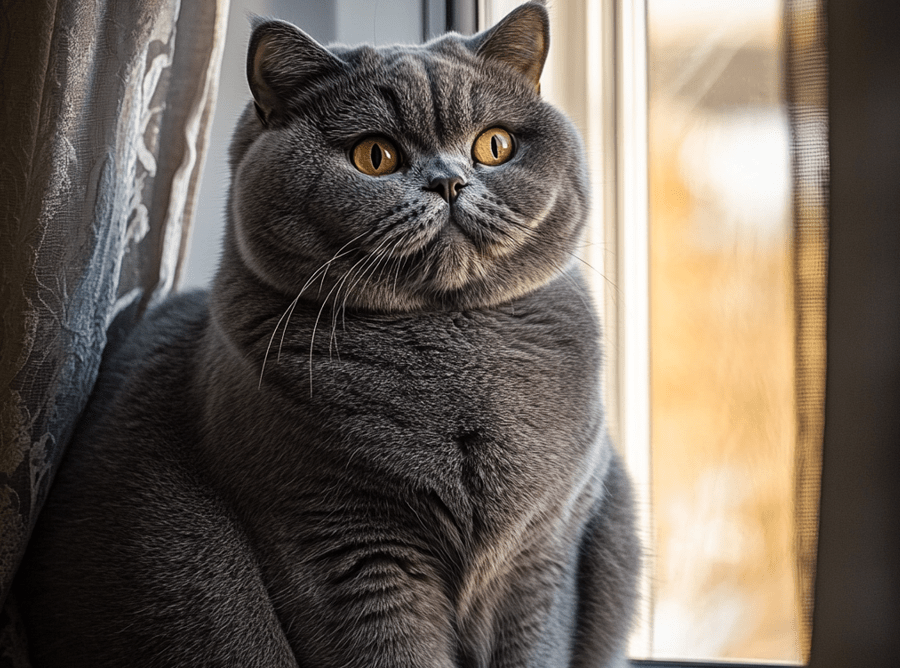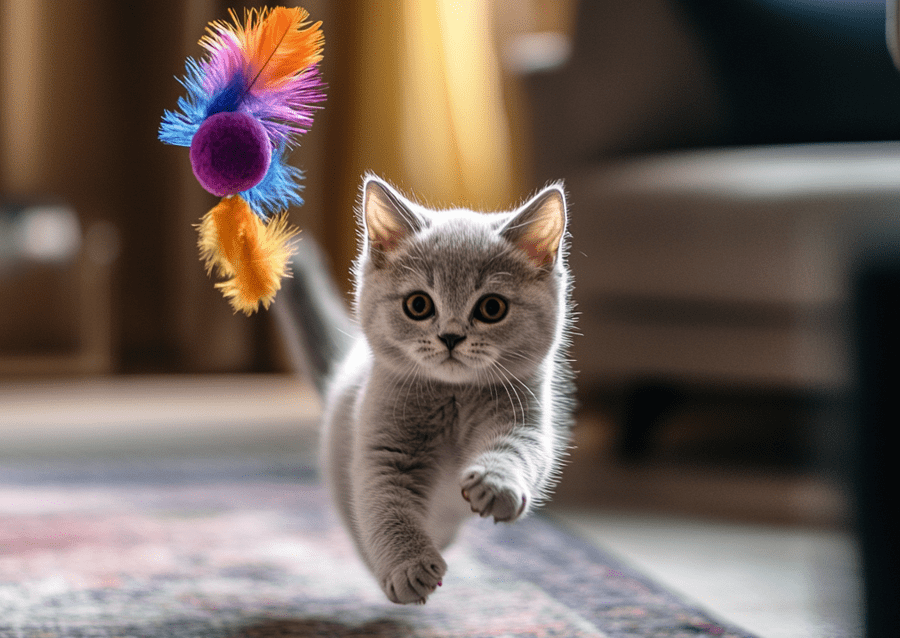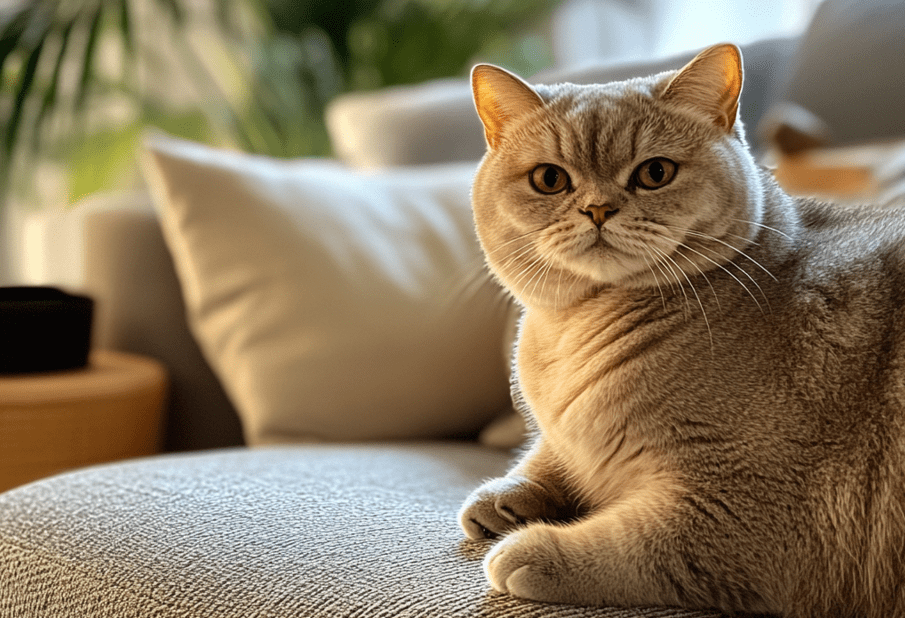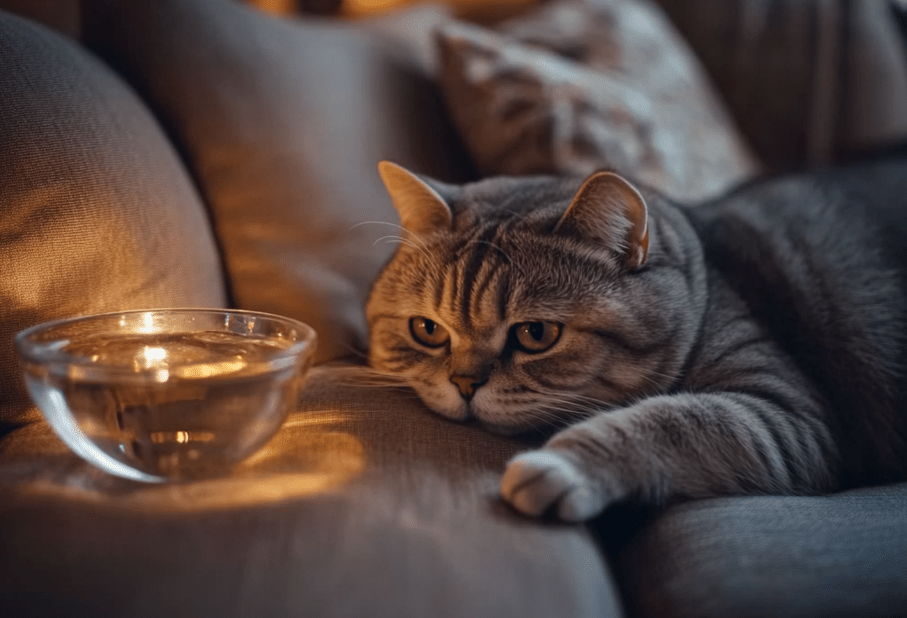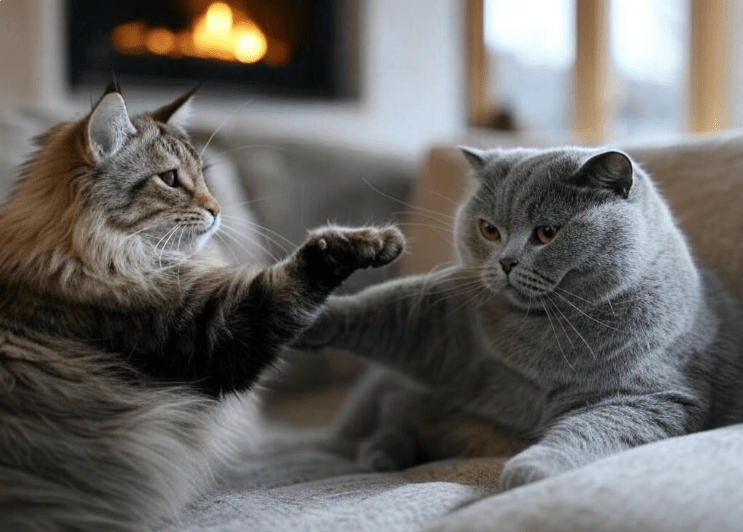
British Shorthairs are renowned for their dense, plush coats that exude elegance and charm, but maintaining that luxurious fur requires proper nutrition. The role of Omega-3s in Your British Shorthair’s Coat Health is critical, as these essential fatty acids promote a shiny, soft coat while supporting overall skin health. This comprehensive guide explores how omega-3s benefit your British Shorthair’s coat, the best sources of these nutrients, and practical tips to incorporate them into your cat’s diet. By understanding and leveraging omega-3s, you can ensure your British Shorthair’s coat remains a stunning feature of their appearance.
Why Omega-3s Matter for British Shorthair Coat Health
Omega-3 fatty acids, including EPA (eicosapentaenoic acid), DHA (docosahexaenoic acid), and ALA (alpha-linolenic acid), are essential nutrients that cats cannot produce on their own. For British Shorthairs, whose thick coats are prone to dryness, matting, or excessive shedding, Omega-3s in Your British Shorthair’s Coat Health play a pivotal role by:
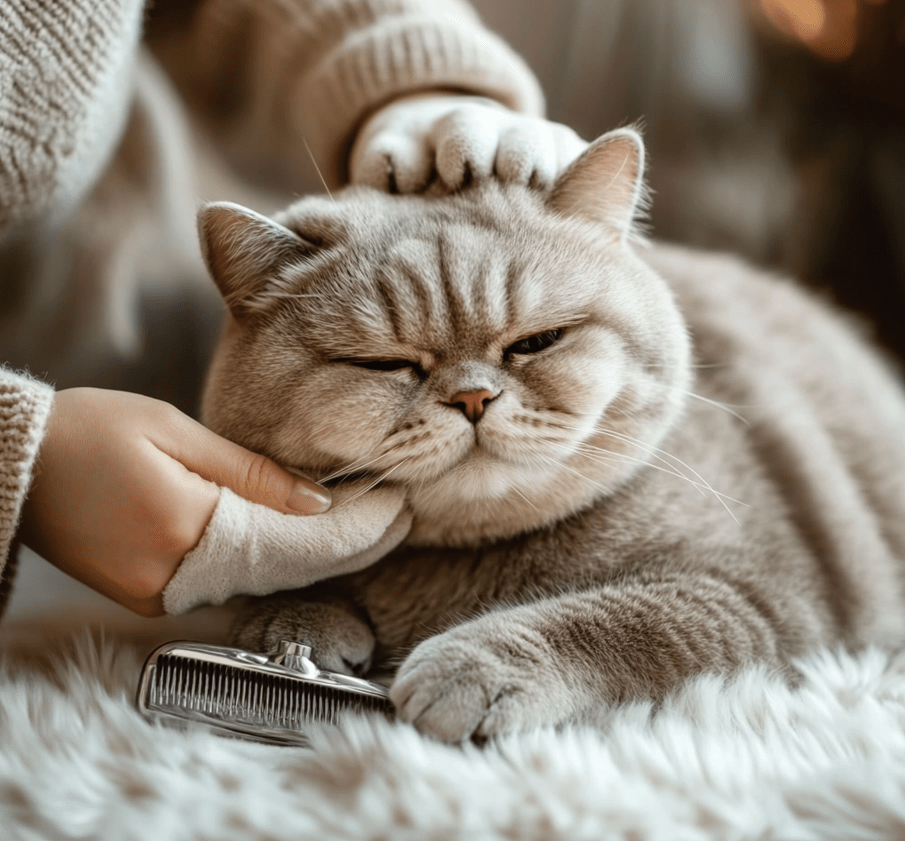
Moisturizing Skin: Reducing dryness and flakiness that can lead to dull fur.
Reducing Inflammation: Alleviating skin irritations or allergies that cause scratching and hair loss.
Promoting Shine: Enhancing the coat’s luster and softness.
Minimizing Shedding: Strengthening hair follicles to reduce excessive shedding.
Supporting Overall Health: Benefiting joints, heart, and immune function.
Given the breed’s dense coat and predisposition to skin sensitivities, incorporating omega-3s into their diet is essential for maintaining optimal coat health.
Common Coat Issues in British Shorthairs
British Shorthairs may face several coat-related challenges that omega-3s can help address:
Dry or Flaky Skin: Leads to a dull, lackluster coat.
Excessive Shedding: Common due to their thick fur, especially during seasonal changes.
Allergies: Food or environmental allergies can cause itching and hair loss.
Matting: Dense fur can mat if not properly maintained, leading to skin irritation.
Hairballs: Frequent grooming by the cat can result in hairballs, affecting digestion.
By integrating omega-3s, you can mitigate these issues and enhance your British Shorthair’s coat quality.
The Science Behind Omega-3s and Coat Health
Omega-3 fatty acids work at a cellular level to support Omega-3s in Your British Shorthair’s Coat Health. Here’s how they function:
Skin Barrier Support: Omega-3s strengthen the skin’s lipid barrier, locking in moisture and preventing dryness.
Anti-Inflammatory Properties: EPA and DHA reduce inflammation caused by allergies, infections, or autoimmune conditions, minimizing scratching and skin damage.
Hair Follicle Strength: Omega-3s nourish hair follicles, promoting stronger, healthier fur growth.
Sebum Production: These fatty acids regulate sebum (natural skin oil), keeping the coat glossy and preventing greasiness or dryness.
Studies in veterinary science show that omega-3 supplementation can significantly improve coat condition in cats, particularly for breeds like the British Shorthair with dense fur.
Best Sources of Omega-3s for British Shorthairs
To harness the benefits of Omega-3s in Your British Shorthair’s Coat Health, you need to incorporate reliable sources into their diet. Here are the top options:
1. Fish-Based Cat Food
Why It’s Great: Many high-quality cat foods include fish like salmon, mackerel, or sardines, rich in EPA and DHA.
Examples:
Royal Canin British Shorthair Adult: Contains fish oil for omega-3s.
Orijen Six Fish: Packed with whole fish for natural fatty acids.
Hill’s Science Diet Adult: Includes fish oil for coat and skin health.
Benefits: Convenient, balanced, and formulated for feline needs.
Tip: Choose wet or dry food labeled with “fish oil” or “omega-3s” in the ingredients.
2. Fish Oil Supplements
Why It’s Great: Liquid or capsule fish oil provides a concentrated dose of EPA and DHA.
Examples:
Nordic Naturals Omega-3 Pet: Pure fish oil with no additives.
Grizzly Salmon Oil: High-potency salmon oil for cats.
Zesty Paws Pure Wild Alaskan Salmon Oil: Easy-to-administer liquid.
Benefits: Allows precise dosing and is ideal for cats with specific coat issues.
Tip: Consult your vet for the correct dosage (typically 100–200 mg EPA/DHA daily for a 10-pound cat).
3. Cooked Fish (Human Food)
Why It’s Great: Small amounts of cooked salmon, mackerel, or sardines provide natural omega-3s.
Preparation: Bake or steam without salt, spices, or oils. Remove bones to avoid choking.
Serving Size: 1–2 teaspoons once or twice weekly.
Benefits: A tasty treat that boosts omega-3 intake.
Caution: Avoid raw fish (risk of thiamine deficiency) and limit tuna (mercury concerns).
4. Flaxseed or Chia Seed Oil
Why It’s Great: Plant-based sources of ALA, which cats can partially convert to EPA and DHA.
Examples: Add a drop of flaxseed oil to wet food (consult vet for dosing).
Benefits: Suitable for cats with fish allergies.
Caution: Less efficient than fish-based omega-3s, so use as a secondary option.
5. Krill Oil
Why It’s Great: Contains EPA and DHA in a highly bioavailable form, plus antioxidants like astaxanthin.
Examples: PetHonesty Omega-3 Krill Oil for Cats.
Benefits: Supports coat health and reduces inflammation.
Tip: Start with a low dose to ensure your cat tolerates it.
How to Incorporate Omega-3s into Your British Shorthair’s Diet
To maximize the benefits of Omega-3s in Your British Shorthair’s Coat Health, follow these steps to integrate them safely and effectively:
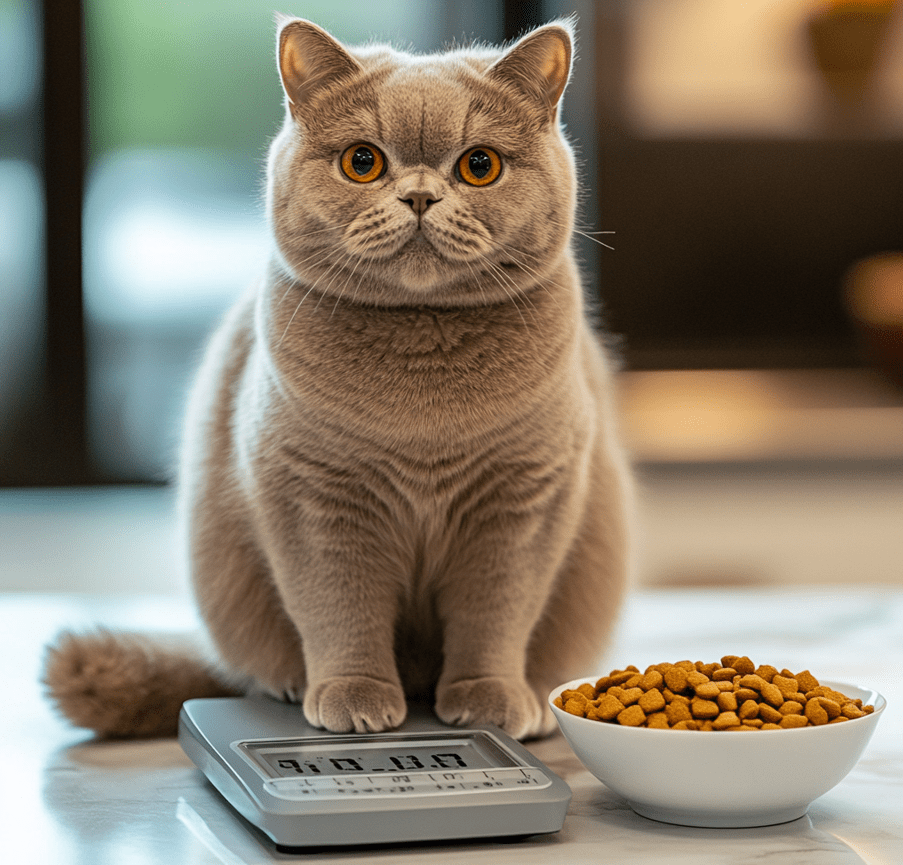
1. Consult Your Veterinarian
Before adding omega-3s, consult your vet to determine the appropriate source and dosage based on your cat’s weight, health, and dietary needs. This is especially important for cats with conditions like pancreatitis or bleeding disorders, as omega-3s can affect blood clotting.
2. Choose a High-Quality Cat Food
Select a cat food with fish oil or whole fish listed in the ingredients. Check the guaranteed analysis for omega-3 content, aiming for at least 0.5–1% of the food’s dry matter. Wet foods often have higher omega-3 levels due to added fish oils.
3. Add Supplements Gradually
If using fish oil or krill oil, start with a low dose (e.g., 1/4 of the recommended amount) and increase over 1–2 weeks to avoid digestive upset. Mix liquid supplements into wet food for palatability.
4. Monitor Portion Sizes
Omega-3s are calorie-dense, so account for their calories in your cat’s daily intake to prevent weight gain, a concern for British Shorthairs. For example, 1 teaspoon of fish oil (about 40 calories) should replace an equivalent calorie portion of regular food.
5. Combine with a Balanced Diet
Omega-3s work best as part of a complete diet rich in protein, taurine, and other nutrients. Avoid relying solely on supplements, as they don’t provide a full nutritional profile.
6. Observe Coat and Skin Changes
Track improvements in your British Shorthair’s coat over 4–8 weeks, noting reduced shedding, increased shine, or less scratching. If no changes occur, consult your vet to adjust the omega-3 source or dosage.
Additional Benefits of Omega-3s for British Shorthairs
Beyond Omega-3s in Your British Shorthair’s Coat Health, these fatty acids offer broader health benefits:
Joint Health: Reduces inflammation in joints, supporting mobility, especially in seniors.
Heart Health: Lowers triglycerides and supports cardiovascular function.
Immune Support: Enhances immune response, helping fight infections or allergies.
Brain Health: DHA supports cognitive function, beneficial for kittens and aging cats.
Urinary Health: Anti-inflammatory properties may reduce bladder irritation, common in British Shorthairs.
These benefits make omega-3s a valuable addition to your cat’s wellness routine.
Potential Risks and Precautions
While omega-3s are generally safe, improper use can cause issues. Keep these precautions in mind:
Overdosing: Excessive omega-3s can lead to diarrhea, vomiting, or bleeding issues. Follow vet-recommended doses (typically 50–100 mg/kg body weight daily).
Calorie Overload: Omega-3 supplements add calories, so adjust food portions to prevent obesity.
Allergies: Some cats may be allergic to fish-based products. Monitor for signs like itching or vomiting.
Rancidity: Store fish oil in a cool, dark place to prevent oxidation, which reduces efficacy and palatability.
Drug Interactions: Omega-3s may interact with medications like blood thinners. Inform your vet of all supplements.
If your British Shorthair shows adverse reactions (e.g., loose stools or lethargy), discontinue omega-3s and consult your vet.
Complementary Practices for British Shorthair Coat Health
To enhance the effects of Omega-3s in Your British Shorthair’s Coat Health, adopt these complementary practices:
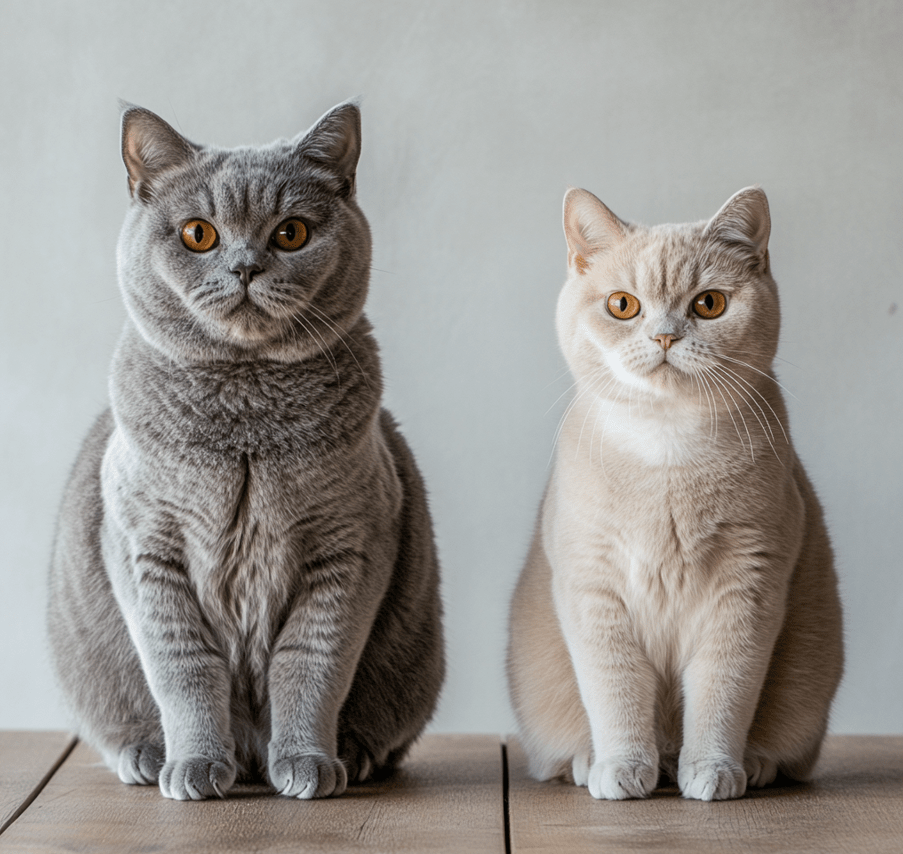
1. Regular Grooming
Brush your British Shorthair weekly to distribute natural oils, remove loose fur, and prevent matting. Use a soft-bristle brush or grooming glove to avoid skin irritation.
2. Proper Hydration
Encourage water intake with multiple bowls or a cat fountain to maintain skin moisture. Wet food also boosts hydration, supporting skin and coat health.
3. Balanced Nutrition
Feed a high-quality cat food with adequate protein, vitamins (e.g., biotin, vitamin E), and minerals (e.g., zinc) to complement omega-3s. Avoid foods with fillers like corn or soy.
4. Allergy Management
Address food or environmental allergies that cause itching or hair loss. Work with your vet to identify triggers and consider hypoallergenic diets if needed.
5. Regular Veterinary Checkups
Annual exams can detect skin or coat issues early, such as infections, parasites, or hormonal imbalances, ensuring timely treatment.
6. Exercise for Circulation
Encourage daily play with toys like feather wands to improve blood flow to the skin, promoting a healthy coat.
Sample Omega-3 Feeding Plan for British Shorthairs
Here’s a sample plan to incorporate Omega-3s in Your British Shorthair’s Coat Health for a 10-pound adult cat:
Morning Meal: 1/4 cup Royal Canin British Shorthair Adult dry food + 3 oz wet food (fish-based, e.g., Orijen Six Fish).
Evening Meal: 1/4 cup dry food + 3 oz wet food mixed with 1/8 teaspoon Grizzly Salmon Oil (approx. 100 mg EPA/DHA).
Treat (Weekly): 1 teaspoon cooked salmon (plain, boneless) twice weekly.
Hydration: Fresh water via a cat fountain; add 1 tablespoon water to wet food.
Adjust portions and omega-3 doses based on your cat’s weight, activity level, and vet recommendations.
Conclusion
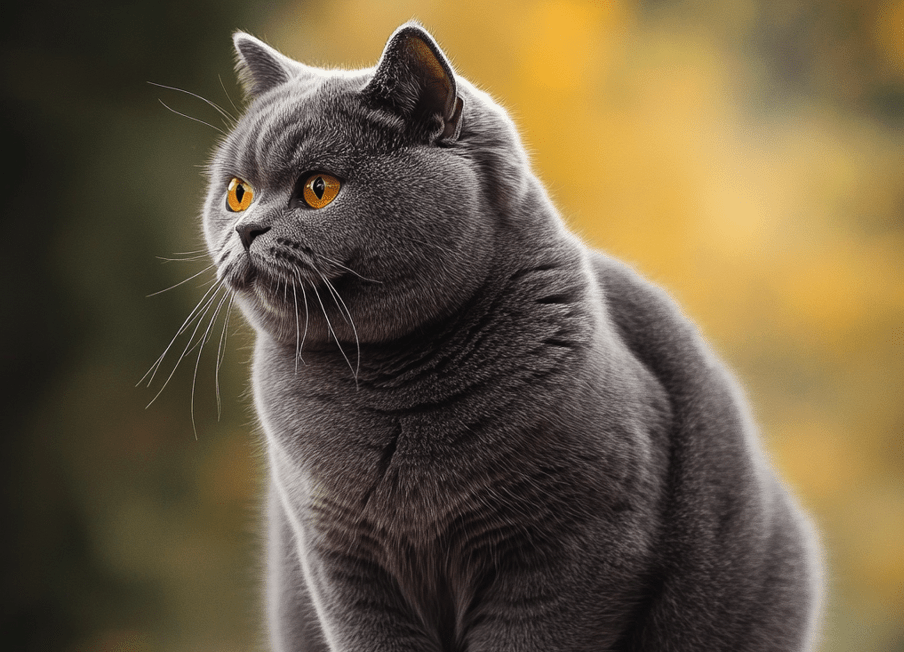
The role of Omega-3s in Your British Shorthair’s Coat Health cannot be overstated. These essential fatty acids transform your cat’s coat from dull to dazzling by moisturizing skin, reducing inflammation, and strengthening hair follicles. By incorporating omega-3-rich foods like fish-based cat food, supplements like fish or krill oil, or small amounts of cooked fish, you can enhance your British Shorthair’s coat while supporting their overall health. Pair omega-3s with regular grooming, proper hydration, and a balanced diet to maximize results. With the insights and practical tips in this guide, you’re equipped to make informed choices that keep your British Shorthair’s coat healthy, shiny, and beautiful for years to come.

